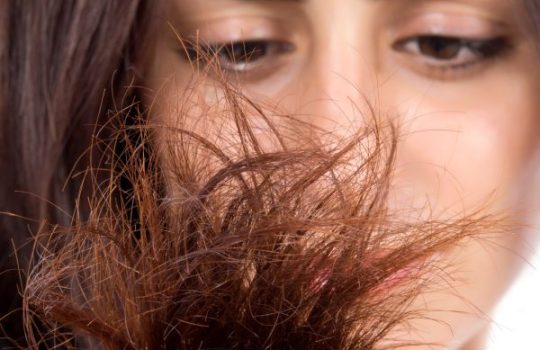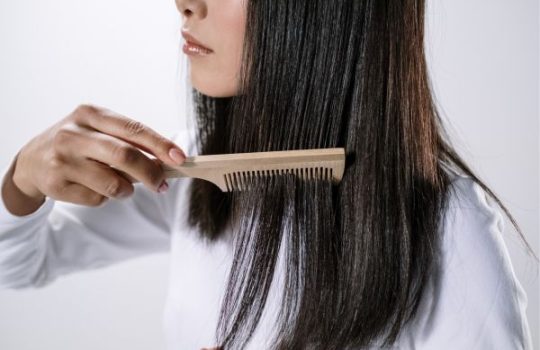How to rebalance your scalp?
Have you ever thought about the health of your scalp? We often talk about hair care, but the scalp is just as important, if not more so! A healthy scalp is indeed the key to shiny and strong hair. So, how to rebalance your scalp? This is what we are going to discover together.
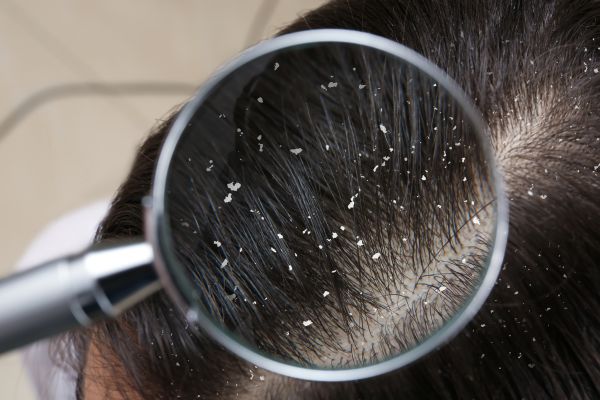
Understanding the scalp and its microbiome
The scalp is more than just a support for our hair. This is the skin that covers the top of our head, from which our hair grows. Structurally, it is made up of several layers of tissue, sebaceous glands that produce sebum (the natural oil that protects and nourishes our hair), and hair follicles, the tiny sacs that house the root of each hair.
When the roots are balanced, they have a healthy appearance: they are clean, supple, without itching or irritation. On the other hand, an unbalanced scalp can manifest itself in several ways: it can be dry or excessively oily, itchy, and show dandruff or redness.
But did you know that just like our intestine, our roots also host a community of living microorganisms? This is called the scalp microbiome. This microbiome, made up mainly of bacteria and yeast, plays a crucial role in the health of our scalp. When healthy, the microbiome helps regulate sebum production, fights potential pathogens, and maintains an optimal pH for the health of our hair.
However, various factors, such as stress, diet, the hair products we use, and even hormonal fluctuations, can disrupt this delicate balance, which can lead to a variety of scalp problems, ranging from dandruff to hair loss. This is why it is so important to understand and care for our scalp microbiome.
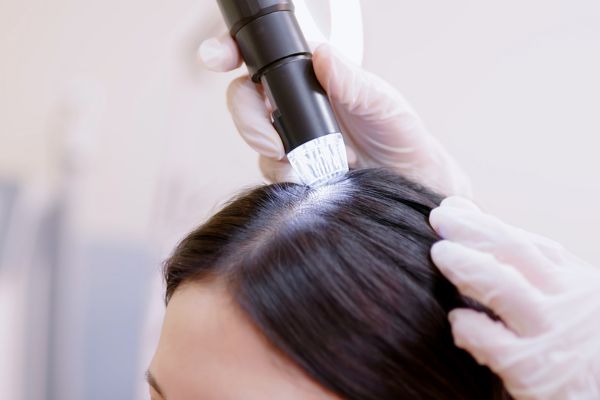
Causes of Scalp Imbalances
To maintain healthy and balanced roots, it is important to understand the factors that can disrupt them. These factors can be internal (related to your body and your lifestyle) or external (related to your environment and your hair care).
Internal factors
Poor diet: Hair, like the rest of your body, needs specific nutrients to be healthy. A diet low in vitamins, minerals and proteins can weaken your hair and roots.
Chronic Stress: Stress can affect your body in many ways, including your roots. For example, it can cause inflammation or disrupt hormonal balance, which can lead to scalp problems like dandruff or hair loss.
Hormonal fluctuations: Certain hormones play an important role in hair health. For example, thyroid hormones regulate the hair growth cycle, and imbalances can lead to problems like hair loss. Likewise, androgenic hormones (like testosterone) can affect sebum production and root health.
Certain health conditions: Certain illnesses, like psoriasis, seborrheic dermatitis, or lupus, can affect the health of your roots.
External factors
Using harsh hair products: Some hair products may be too harsh for your scalp, especially if they contain ingredients like sulfates, alcohol or certain preservatives. They can dry out your roots, disrupt their pH, or cause irritation.
Exposure to polluted environments: Air pollution can build up on your scalp and hair, which can lead to imbalances. Additionally, certain environments (like very dry or very humid environments) can affect the hydration of your roots.
Neglecting hair care: Not washing your hair often enough, or on the contrary washing it too often, can unbalance your scalp. Likewise, aggressive styling techniques (like using excessive heat or styling products) can damage your roots.
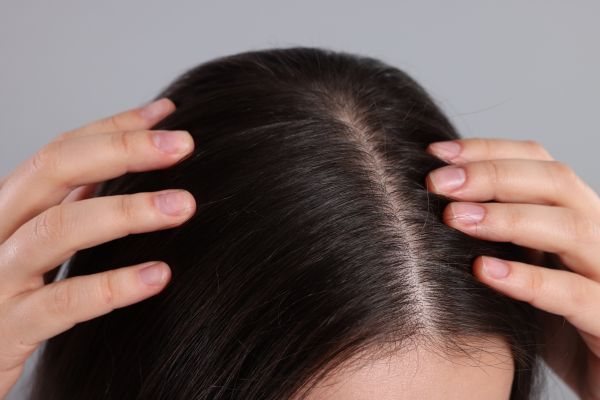
How to rebalance your scalp?
To rebalance your roots, a holistic approach is often best. This involves adjustments to your hair care, using suitable products, regular care and even taking dietary supplements. Here are a few tips :
Adopt the right actions: Brush your hair regularly to distribute sebum over the entire length of the hair and stimulate blood circulation to the scalp. This simple gesture helps maintain healthy roots and hair. When washing your hair, do it gently. Rub the scalp with your fingers in a circular manner, without using your nails or rubbing too hard, and rinse with lukewarm water rather than hot water to avoid drying out the roots.
Choose the right products: The products you use have a direct impact on the health of your scalp. Choose gentle, sulfate-free shampoos, conditioners, and hair masks. Sulfates are detergents that can dry out and irritate roots. Also opt for treatments enriched with probiotics or prebiotics, which can help rebalance the scalp microbiome.
Do regular care: Regular care of the scalp can help maintain its balance.
For example, you can do a root massage with jojoba oil or tea tree oil. These oils have soothing and rebalancing properties and can help relieve irritation and regulate sebum production.
Take food supplements: Finally, certain food supplements can help rebalance the scalp from the inside. Supplements rich in omega-3 fatty acids, for example, can help regulate sebum production and reduce inflammation. Supplements containing B vitamins, zinc, iron and biotin can also support scalp health and hair growth like our Aromas Cosmetics Anti-Hair Loss and Growth Complex .


